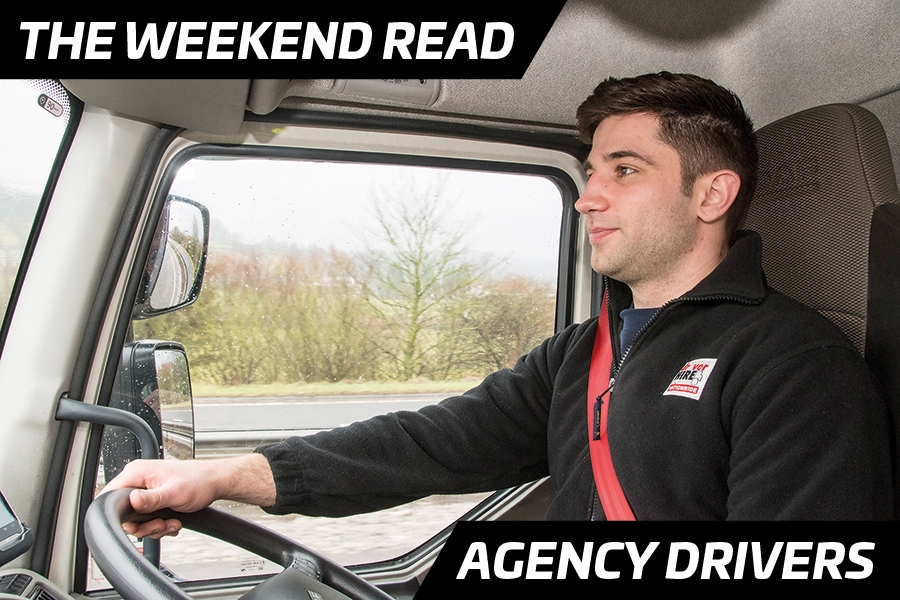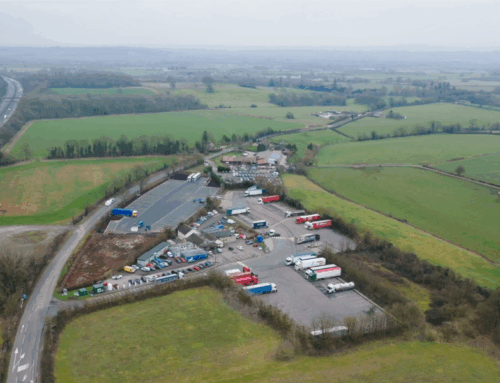Agency drivers should be as compliant as any other driver. Richard Owen-Hughes of Driver Hire Nationwide tells us how to achieve it.
An important ingredient in the success of the UK economy for many years has been the high level of flexibility of its workforce. This flexibility has delivered a significant competitive advantage as compared with other European and global economies.
The UK logistics sector is exceptionally fast-moving and dynamic – a true 24/7 operation where suppliers need to be comfortable delivering short lead times and high standards of customer service.
The agency driver is a vital cog in this complex machine. Used strategically and with appropriate forward planning, agency drivers deliver a level of flexibility that is hard to match with a fully-employed workforce, allowing the fleet manager to scale up and down easily in line with demand. An agency driver can also, of course, step in at the last minute to cover an operational emergency.
Naturally, any professional fleet operator will want to ensure that all their drivers – whether agency or fully-employed – drive safely and responsibly and ideally, act as ambassadors for their brand.
Are agency drivers less compliant?
For some people, there’s a perception that agency drivers are inherently less compliant than their fully-employed colleagues. At Driver Hire we firmly believe that professional agency drivers are a good thing for the UK logistics industry and there is no reason why they should be any less compliant than their fully-employed colleagues.
Here, we outline some key considerations in achieving compliance for your fleet.
What do we actually mean by compliant?
The range of rules and regulations that apply to agency drivers is vast. The recruitment industry is tightly governed and the road transport sector is, if anything, even more so. Issues that need to be considered include:
Drivers’ Hours, Rest and Breaks
Fatigue is a significant cause of accidents and injuries, with 20% of accidents on major roads being sleep-related according to Government figures. All professional drivers and operators must ensure compliance with legislation such as the Drivers’ Hours rules (EC561/2006) and the Road Transport (Working Time) Regulations 2005, which define safe and fair working hours and help to keep this danger to a minimum.
Pre-driving checks
According to DVSA, the majority of issues that are identified during roadside inspections should have been picked up by the driver if they had conducted a thorough walk round check. A good agency driver will always carry out a thorough check of your vehicle before driving and report any issues to you
Rules of the Road
The Highway Code isn’t law in itself, but it forms the basis of many road traffic laws. From speed limits for different vehicle types to the mobile phone rules, correct use of smart motorways to recognising road signs – every professional driver should study it in-depth
Recruitment checks
When taking on the services of an agency driver, it’s important to be sure that all required checks have taken place – for example the right to work in the UK, appropriate medical and eyesight tests, driving licence category and special certificates such as the Driver Qualification Card (DQC) for Driver CPC.
Who can contribute to high standards of compliance?
Remember that legally, the agency driver is under the “supervision, direction and control” of your organisation when they are driving for you. This is a significant responsibility and you should view it as being effectively the same as for drivers that you directly employ.
But everyone has a role to play when it comes to legal compliance for agency drivers – the fleet operator, the employment agency, and the driver.
Driver responsibility
Any driver in charge of any vehicle has a responsibility to all other road users and it is reasonable to expect them to take that responsibility seriously. Clearly things will happen out on the road that you cannot control. But before that point is ever reached, you – perhaps supported by your chosen agency – are responsible for deciding who gets behind the wheel of your vehicles, and ensuring that they are properly briefed.
The agency
Choose your agency carefully. There are thousands of recruitment businesses out there and they do not all work to the same standards. Any agency that deserves your business should have compliance as a very high priority, and they should be prepared to answer any questions that you need to ask.
Hallmarks of a quality operation include:
- Extensive range of screening checks. At Driver Hire, every driving candidate undergoes a 150-point assessment before they are offered work. This includes all of the recruitment checks outlined above and more. At least two references are requested and always followed up. Not all agencies will carry out a face-to-face interview for all roles, but in our view this is a key step. Both the candidate and the agency need to get to know one another and establish trust – this is hard to do on paper or online. Some agencies can also offer training to fill any gaps in a driver’s knowledge.
- Customer and candidate feedback. This is the acid test in a service industry like recruitment, where people are happy to share their views if the experience has been less than good. You can find reviews online, but a good operator will also conduct their own surveys and be ready to share the results with you.
- Relationships matter. A good agency driver is much more than a commodity and getting it right is about delivering much more than just a driver. The right agency for you is one that genuinely wants a partnership, that takes the time to understand the nature of your business, your culture, any particular challenges you face and the critical success factors for your business.
You, the fleet operator
As we have said, you take the ultimate decision as to who gets behind the wheel of your vehicles and they are under your supervision when they are driving for you. Here are a few further tips to help you ensure compliance when using agency drivers.
- Have a plan. It’s likely that you will need to use agency drivers from time to time and properly planned, they can help increase the efficiency and reduce costs within your organisation. Whether you’re investing in a more flexible workforce or just need extra help to cover holidays, sickness or a seasonal peak, make the use of agency drivers part of your business strategy.
- Choose your agency carefully and think long term. If compliance matters to you, don’t only buy based on price. Proper checks and consistent standards do take time, and there have to be robust systems in place to make these possible. A small start-up recruiter may offer a great headline price but they may not be able to match larger specialists. Likewise, a ‘master vendor’, that sources candidates from a panel of independent recruiters may struggle to deliver consistent standards across the country.
- Ask the agency the right questions. Trade bodies such as the FTA and RHA offer good advice on working with employment agencies and the kind of questions to ask. A great example is to ask “how” instead of “if”. For example, “How do you check a driver’s identity and right to work?” or “How do you test drivers for their knowledge of drivers’ hours and rules of the road?”
- Focus on the driver induction. You wouldn’t put one of your own drivers out to work without a thorough briefing so it’s unrealistic to expect an agency driver to perform the same task with less information. For a long-term temp, the induction should really be just the same as for your own staff. But even for a shorter assignment, it’s important to share key information. Give full details of the job, of course, and the vehicle they will be driving, but also any facilities and benefits that are available to them while they are working for you, and an insight into your expectations and culture as an employer. If there are any gaps in their knowledge, it’s fair and sensible to help fill those gaps with a bit of training.
A positive asset for your business
Agency drivers can be a real force for good within your fleet. Recognise that many people have a role to play in compliance. Take your responsibilities seriously and choose an agency that you can trust to do the same. Treat agency drivers just as you would treat your employed drivers and in return, you can expect them to perform just as well as your own staff.







